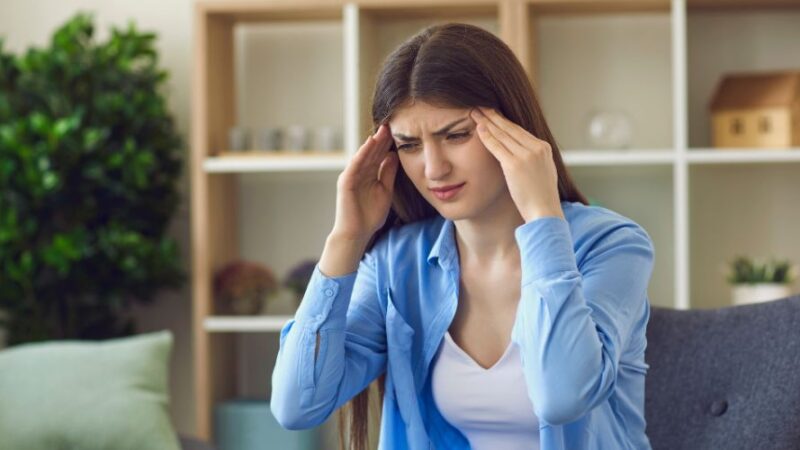Is It Sadness or Depression? Key Differences

Sadness is a normal part of being human. We all experience it after loss, disappointment, or tough life events. But when that feeling lingers, deepens, and begins to affect every aspect of your life, it could be something more serious-depression.
While sadness and depression share some emotional experiences, they are fundamentally different in terms of duration, intensity, cause, and impact. Understanding this difference is crucial-not only for your mental health but also for knowing when and how to seek support.
What Is Sadness?
Sadness is a natural, short-term emotional response to difficult situations. It’s an important part of how we process challenges, grieve losses, and respond to disappointment. It can feel heavy, draining, and uncomfortable, but it usually resolves with time, self-care, or support.
Key Characteristics of Sadness:
- Caused by a specific event or circumstance (e.g., a breakup, job loss, argument).
- Emotional pain like crying, disappointment, or low mood.
- Still able to find moments of pleasure or joy.
- Doesn’t interfere significantly with daily life.
- Usually eases as time passes or situations improve.
Example:
You didn’t get the job you were excited about. You feel upset and discouraged for a few days, but after venting to a friend and spending a weekend recharging, your mood lifts.
What Is Depression?
Depression is a clinical condition-a type of mental illness-that affects the way you feel, think, and function. It’s more than just sadness. Depression is marked by persistent low mood, a sense of hopelessness, loss of interest in life, and difficulty carrying out everyday tasks.
Key Symptoms of Depression:
- Lasts for at least two weeks or longer.
- Often occurs without a specific cause.
- Includes intense emotional numbness, sadness, or despair.
- Accompanied by physical symptoms (fatigue, sleep problems, appetite changes).
- Impairs daily life-affecting work, relationships, motivation, hygiene, etc.
- May include suicidal thoughts or feelings of worthlessness.
Example:
You feel emotionally “flat” for weeks, can’t enjoy hobbies, struggle to get out of bed, and isolate yourself from friends. Even happy events don’t lift your mood. You wonder what’s wrong with you, and feel hopeless for no clear reason.
How to Cope with Depression Without Medication
Comparison: Sadness vs. Depression
| Factor | Sadness | Depression |
| Duration | Temporary (a few hours or days) | Long-lasting (two weeks or more) |
| Trigger | Specific event (loss, disappointment) | May occur with or without an obvious reason |
| Emotional Response | You can still feel joy, hope, and motivation | Persistent feelings of emptiness, numbness, despair |
| Daily Functioning | Slightly affected, if at all | Severely impaired-difficult to work, socialize, etc. |
| Physical Effects | Minor, usually no appetite/sleep disruption | Fatigue, appetite/sleep issues, aches, low energy |
| Cognitive Patterns | Occasional negative thoughts | Constant self-criticism, guilt, or suicidal ideation |
| Improves With Time | Yes, often within a few days or weeks | Rarely, without professional help |

Why the Difference Matters
Understanding the difference between sadness and depression is vital. While sadness may simply require self-care and time, depression often needs medical or psychological intervention.
Failing to recognize depression can lead to worsening symptoms, isolation, substance abuse, or even suicidal thoughts. Getting help early makes a significant difference in recovery.
When Should You Seek Help?
You should consider professional help if:
- You feel persistently down, numb, or empty for two weeks or more.
- You’re unable to complete basic tasks or maintain relationships.
- You lose interest in everything you used to enjoy.
- You experience physical symptoms like fatigue, sleep issues, or weight change.
- You think about self-harm or feel like life isn’t worth living.
Reaching out doesn’t mean you’re weak-it means you care about your health.
What To Do If You’re Not Sure
If you’re uncertain whether you’re experiencing depression or extended sadness:
- Track your symptoms in a mood journal.
- Talk to someone you trust-a friend, family member, or therapist.
- Try self-care strategies and see if there’s improvement.
- Visit a mental health professional for an accurate assessment.
Even if it turns out to be just sadness, talking helps.
FAQs: Is It Sadness or Depression?
1. Can sadness turn into depression?
Yes. If sadness remains unresolved for a long period, or if it occurs alongside other symptoms like hopelessness and fatigue, it can develop into clinical depression.
2. Is crying a sign of depression?
Not necessarily. Crying is a normal expression of sadness. However, if it happens frequently, without clear reason, or along with other depressive symptoms, it may indicate depression.
3. I’m tired all the time-does that mean I’m depressed?
Fatigue can have many causes, including poor sleep, stress, or medical conditions. But if it’s accompanied by emotional distress, low motivation, or a loss of interest, it could be a symptom of depression.
4. Can I treat depression without medication?
Yes. Many people manage depression with therapy, lifestyle changes, support groups, and mindfulness practices. However, in moderate to severe cases, medication can be very effective when combined with therapy.
5. What should I say to someone if I think they’re depressed?
Be gentle and non-judgmental. You can say:
“I’ve noticed you haven’t been yourself lately. I care about you and I’m here if you want to talk.”
Avoid offering clichés like “just cheer up.” Listen more than you speak.
6. Is it depression if I’m still functioning but feel empty?
Yes, it’s possible to have high-functioning depression (also known as dysthymia or persistent depressive disorder). You might still go to work or socialize, but feel emotionally drained or hopeless inside.
Final Thoughts
Sadness is part of life-it helps us process change and grow emotionally. Depression, on the other hand, is a medical condition that can drain joy, purpose, and vitality. If you’re feeling stuck, overwhelmed, or like the world has lost its color, know this:
You’re not alone.
It’s not your fault.
And help is available.
If in doubt, reach out. You deserve to feel better.






